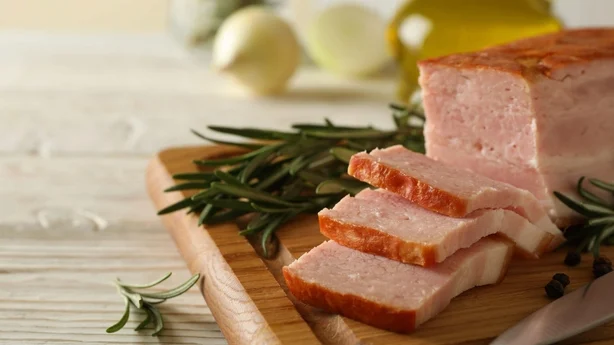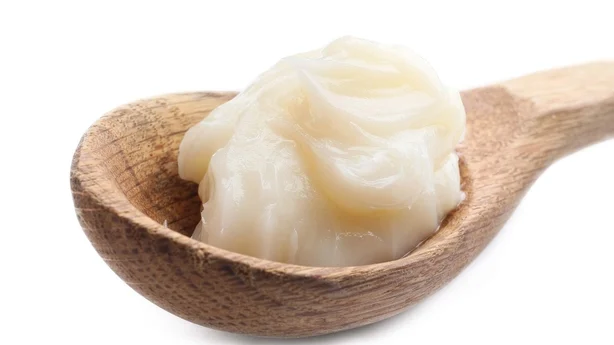Stay updated with the latest beauty tips, trends, and news from our salon experts. Our blog is your go-to source for all things beauty.
If you’ve been an avid consumer of beauty TikTok lately, you’ll probably have heard that beef tallow is the latest skincare fad.
Beef tallow is solidified fat from a cow. It’s normally used in cooking – such as deep frying and roasting – and would classically be used for getting your potatoes ultra-crispy or fluffing up some Yorkshire puddings.

And while many may have it in the cupboard ready for Christmas – TikTok is using this pantry staple in a wholly different way.
When ‘trad-wife’ influencer Nara Smith used beef tallow as the basis for her homemade moisturiser and claimed it did wonders for her skin, TikTokers soon followed suit.
People have claimed that beef tallow protects the skin barrier and can also help with acne (as an anti-inflammatory).
Some may say this is the organic beauty movement going a step too far, while others argue this natural product is better than using chemical serums.
So, we hear from leading dermatologists what using beef tallow could actually do to your skin.
The benefits of beef tallow
Hailed by BeautyTok as a ‘miracle skin product’, beef tallow has become the new favourite DIY moisturiser for a steadily growing niche of organic skincare enthusiasts.
The rendered beef fat can supposedly improve your skin barrier and lock in moisture. Naturally, beef tallow does contain some antioxidants, vitamin A, D and K and some essential fatty acids. This may help with skin that has never used proper skincare before or have severely impaired barriers.
"Beef Tallow contains fatty acids which help to hydrate the skin whilst also protecting the skin’s main barrier," explains Dr Ross Perry at Cosmedics skin clinics. "As a skincare product it can really help with skin which is overly dry, and those who suffer from dry skin conditions such as psoriasis and eczema."
What skin type is best suited for beef tallow?
Beef tallow is very rich in emollients, meaning it is arguably best suited for very dry skin and certainly not for acne-prone complexions.
"When you’re looking for a moisturiser there are three categories of ingredients to look for," explains Dermal Therapist Joanna Fleming. "These are humectants, emollients and occlusives.

"Humectants, such as hyaluronic acid, draw moisture into the skin. Emollients, like ceramides, help keep the skin smooth and prevent moisture loss. Then occlusives, like shea butter, help seal in moisture," explains Fleming.
"Beef tallow is really heavy on the emollients, because it’s very rich in triglycerides [fatty lipids that are found in the blood stream]," says Fleming.
"This therefore will offer some skin moisturising benefits – perhaps even reparative benefits if you have a little bit of an impaired barrier – but if you do have an impaired barrier I’d be worried about introducing foreign bacteria onto the skin."
The risks of using beef tallow
While chemical-based skincare is currently being demonised in favour of more ‘natural products’ – it is important to remember that there are risks in applying cooking ingredients directly to your skin.
Having not been formulated in a sterile environment for use on the skin, beef tallow can carry bacteria, and there is a high risk in it going off very quickly.
If you are going to use beef tallow, Perry advises buying it from a pharmacy rather than a supermarket. "[Beef tallow] can be used in small amounts on the face, but when you purchase a ‘beef tallow’ skin product, the likelihood is that it’s been mixed with other skin-boosting benefits," he says.
As a food product, beef tallow will also go rancid if not kept in proper conditions (such as on bathroom shelves), as it is not formulated to last like bespoke skincare products.
"Keep in mind that everyone’s skin reacts differently to products," explains Dr Akis Ntonos, founder of Aion Aesthetics and partner of Certainly Health, "it may cause additional irritation or worsen acne in others.
"It could give your skin an unpleasant odour!"
What to use instead
While not being dermatologically tested in a controlled environment, "beef tallow doesn’t smell great either," laughs Fleming.
"So I don’t think it’s something worth trying in my opinion. Just get a moisturiser that has those three key ingredients in it – humectants, emollients and occlusives – and you’ll probably get a better result with your skin."